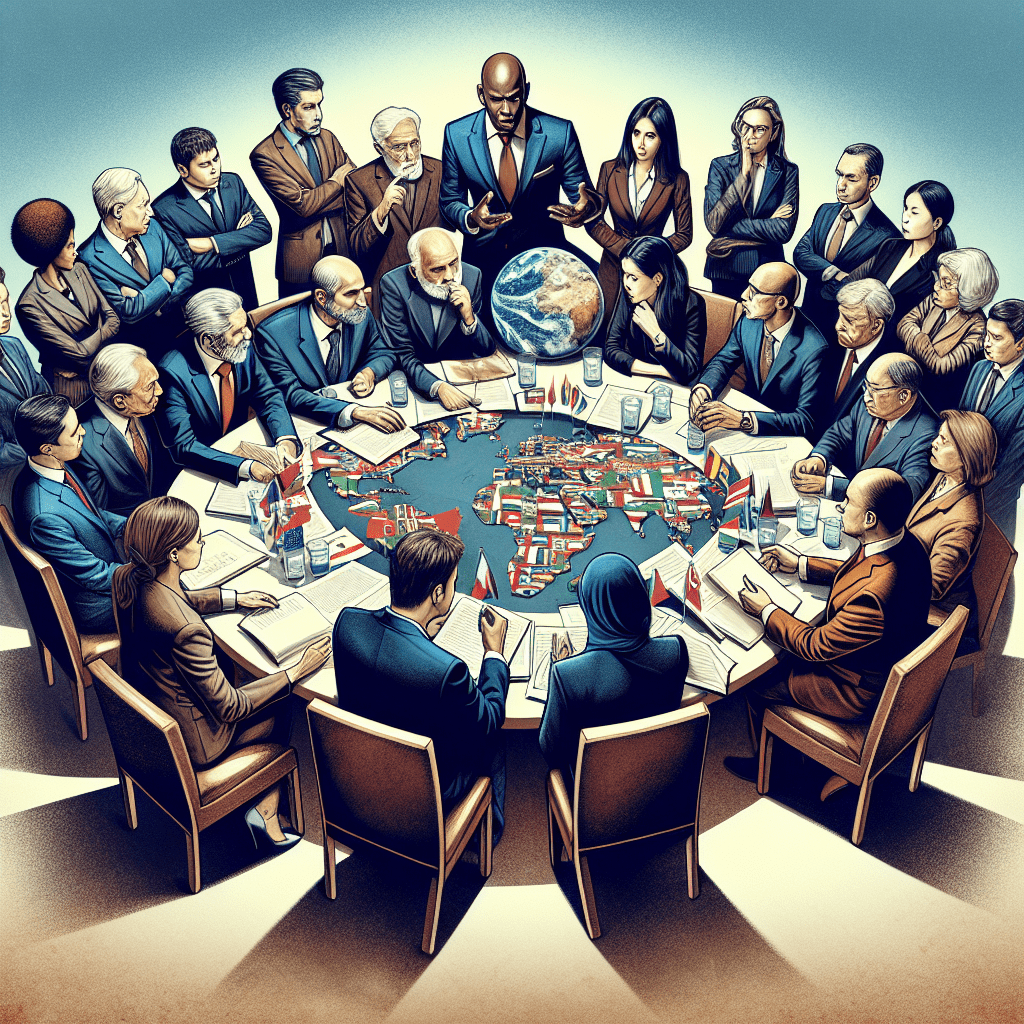Title: Global Diplomacy in Action: Navigating Ceasefires, Alliances, and Challenges
Introduction
The world stage has been abuzz with significant developments that shape not only geopolitics but also international cooperation and human resilience. From a potential ceasefire in the prolonged Ukraine-Russia conflict to heightened military exercises in the Middle East and groundbreaking space operations, these events underline the dynamic nature of global diplomacy and conflict resolution. This article delves into the most recent and compelling international news stories, their context, and their implications for global affairs today.
Major International Developments and Their Implications
1. Russian President Putin Approves Ceasefire Proposal in Ukraine-Russia War
Ongoing since 2014, the Russia-Ukraine conflict has claimed thousands of lives and displaced millions. However, recent diplomatic efforts seem to offer a glimmer of hope. Russian President Vladimir Putin has reportedly agreed to a ceasefire proposed by former U.S. President Donald Trump.
This agreement follows a series of intense trilateral negotiations involving the United States, Ukraine, and Russia. Trump's involvement, though unconventional, signifies how former world leaders can influence ongoing conflicts. This could lead to a temporary halt in hostilities, providing much-needed relief for innocent civilians trapped in the conflict zones.
The development offers an opportunity to reestablish dialogue and possibly move toward a long-term resolution. However, skeptics remain wary, considering the fragile nature of prior ceasefire agreements that failed.
Key Takeaways:
- International mediators still play a crucial role in resolving disputes.
- For this ceasefire to succeed, mechanisms for accountability and enforcement are essential.
2. Joint Naval Drills: China, Iran, and Russia Strengthen Alliances
In a move showcasing rising multipolar global dynamics, China, Iran, and Russia conducted joint naval exercises in the Middle East. These drills serve not just as a demonstration of camaraderie but also escalate tensions with rival nations such as the United States.
The joint operations, held against the backdrop of ongoing U.S. sanctions on Tehran and strained Sino-American relations, underscore shifting alliances. Such military exercises symbolize a united front challenging what these nations perceive as a Western-dominated world order.
But what does this mean for global diplomacy? It reinforces the necessity for inclusive dialogue to avoid new "Cold War"-style dividing lines.
Key Takeaways:
- The drills could shape future geopolitics by strengthening regional power dynamics.
- They are a stark reminder of the importance of balancing diplomacy with competition on the world stage.
3. Arrest of Former Philippine President Duterte on ICC Warrant
A monumental moment in accountability, former Philippine leader Rodrigo Duterte was arrested at Manila’s airport on charges by the International Criminal Court (ICC). This bold move stems from accusations of crimes against humanity linked to his controversial drug war, which reportedly led to thousands of extrajudicial killings.
While the arrest validates the ICC's very purpose—to hold world leaders accountable—the political ramifications could be significant. Critics argue this could deepen domestic instability within the Philippines, where Duterte still holds substantial influence.
Key Takeaways:
- The arrest could encourage greater international accountability.
- However, it underscores ongoing global debates about the ICC’s jurisdiction and enforcement.
4. SpaceX Brings Astronauts Back: A Leap in Space Diplomacy
In a stunning demonstration of technological prowess, SpaceX successfully brought back astronauts Sunny Williams and Butch Wilmore from the International Space Station (ISS). Despite prior challenges, including hydraulic issues, the success epitomizes the potential of public-private partnerships in space exploration.
The ISS remains a beacon of international collaboration, representing partnership among 15 countries, including the U.S., Russia, Japan, and European nations. SpaceX’s role here suggests a future where private entities play major diplomatic roles beyond Earth.
Key Takeaways:
- Space exploration could evolve into one of the key arenas for international cooperation.
- Success stories like SpaceX inspire hope for solving Earth’s challenges, from climate change to global innovation.
5. Severe Weather and Its Implications
Closer to home in the U.S., a life-threatening storm system has placed over 120 million Americans under weather alerts. With fire risks in the West and tornado warnings in the South, the crisis underscores the urgent need for international collaboration on combating climate change.
Such widespread threats highlight vulnerabilities in infrastructure and insufficient disaster preparedness in the face of extreme weather. Governments worldwide must work together for better scientific research, resource allocation, and actionable policies to mitigate climate risks.
Key Takeaways:
- Multilateral agreements like the Paris Accords must materialize into tangible results.
- Climate action is no longer optional—it’s imperative to safeguard human life and resources.
Conclusion
The stories discussed here—from ceasefires and military alliances to accountability and space diplomacy—all point toward one undeniable truth: the world is at an inflection point. Nations must navigate a complex web of partnerships, conflicts, and challenges with both caution and innovation.
Whether it’s addressing human rights abuses, exploring new frontiers in space, or mitigating climate disasters, global problems demand global solutions. Every headline reminds us of this interconnectedness—and the responsibility we share in shaping a just and peaceful world.
Q&A Section
1. How important was Putin’s approval of the ceasefire?
It’s a significant step toward peace, though success will depend on all parties honoring the agreement and implementing measures for long-term stability.
2. Why are China, Iran, and Russia engaging in joint drills?
These exercises aim to showcase political and military unity, challenging perceived Western dominance.
3. Can Duterte’s arrest set a precedent for other leaders?
Yes, it signifies that even powerful figures can be held accountable, though enforcement challenges persist globally.
4. Why is SpaceX's ISS mission so notable?
It highlights the growing role of private companies in international scientific missions while stabilizing global cooperation in space exploration.
5. What’s the link between the U.S. storm and global issues?
Extreme weather events emphasize the need for international action on climate change to prevent widespread humanitarian and economic crises.
Related Tags:
#GlobalDiplomacy #UkraineRussiaConflict #ClimateCrisis #SpaceExploration #InternationalCooperation #ICCJustice #MilitaryAlliances
Meta Description:
Explore key international developments, from Putin’s ceasefire approval in Ukraine to SpaceX's ISS mission, climate challenges, and the arrest of President Duterte. Navigate global diplomacy and turning points shaping our world.
